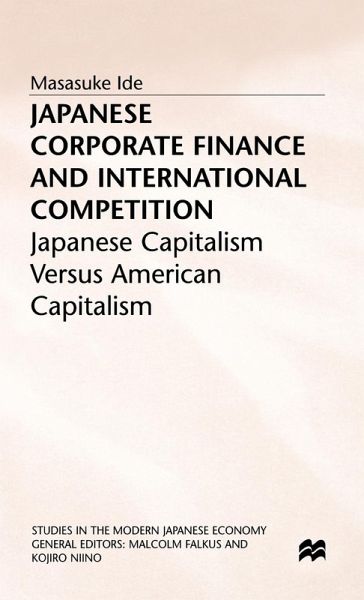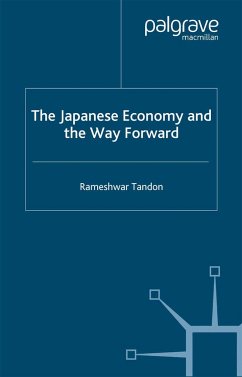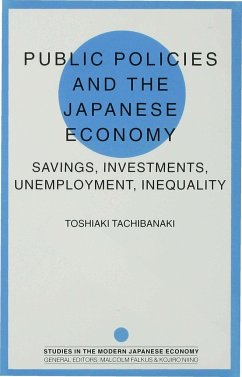
Japanese Corporate Finance and International Competition
Japanese Capitalism Versus American Capitalism

PAYBACK Punkte
38 °P sammeln!
In this book, the author describes that the relationship based shareholding was the hidden key factor to explain Japan's miraculous economic success after WWII. The stock market which valued the low profitability Japanese companies highly enabled them to provide 'better and cheaper' manufactured goods in the export markets, leading resource poor Japan to a leading exporter and economic and financial superpower. The book also casts critical eyes to the weakness of the traditional Japanese financial system as a catch-up model, in comparison with the open US system.














